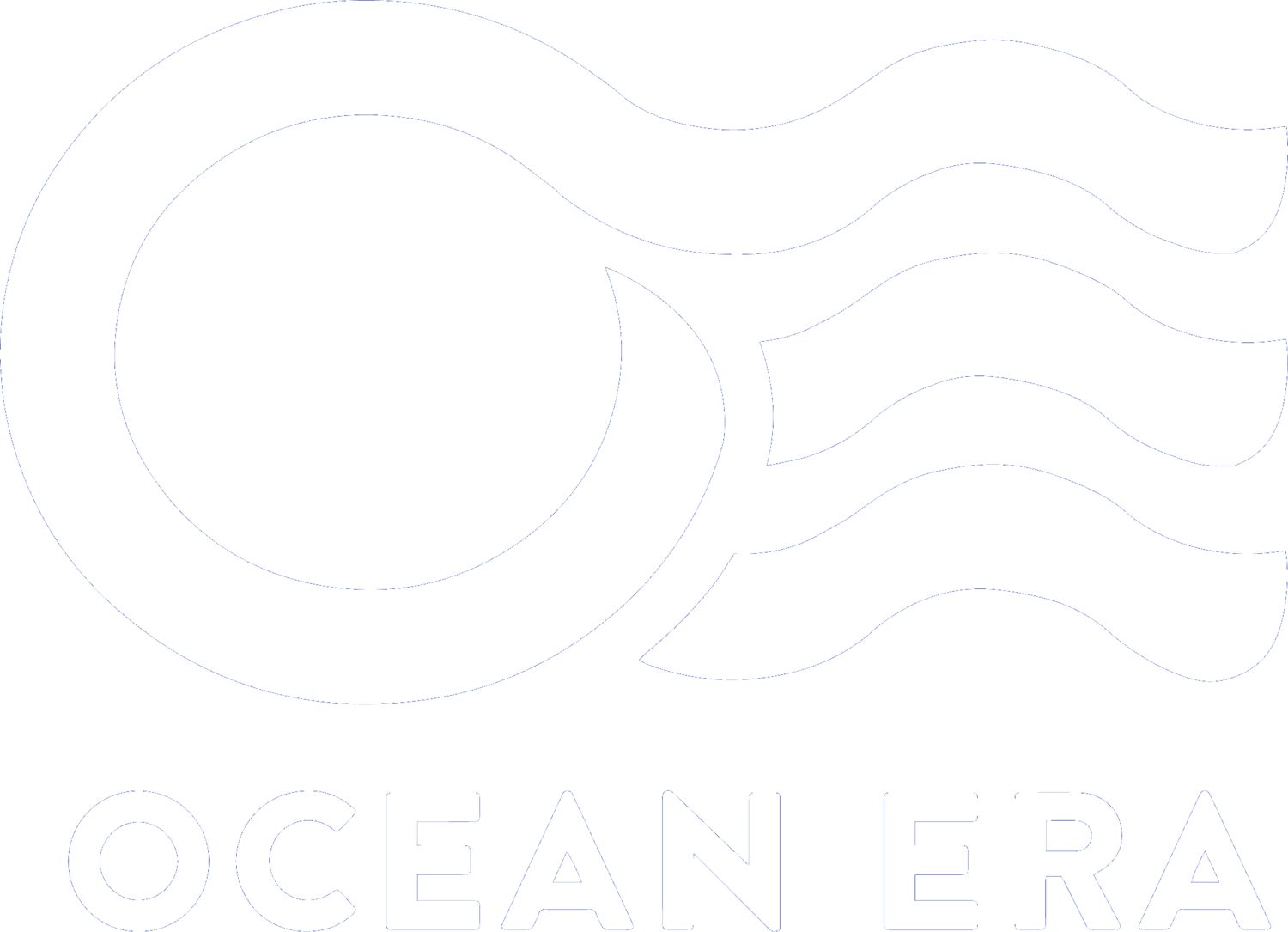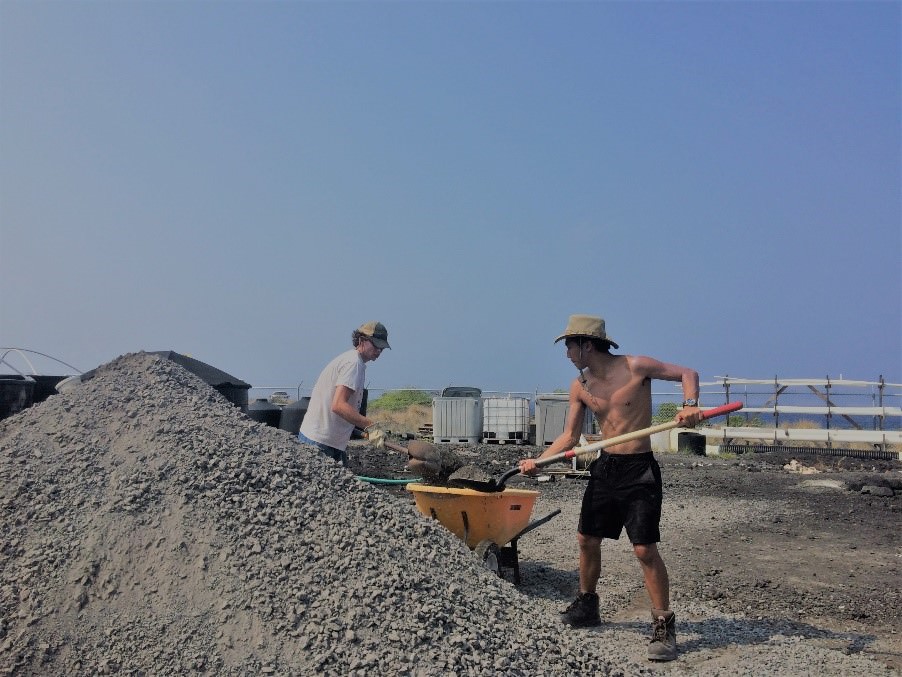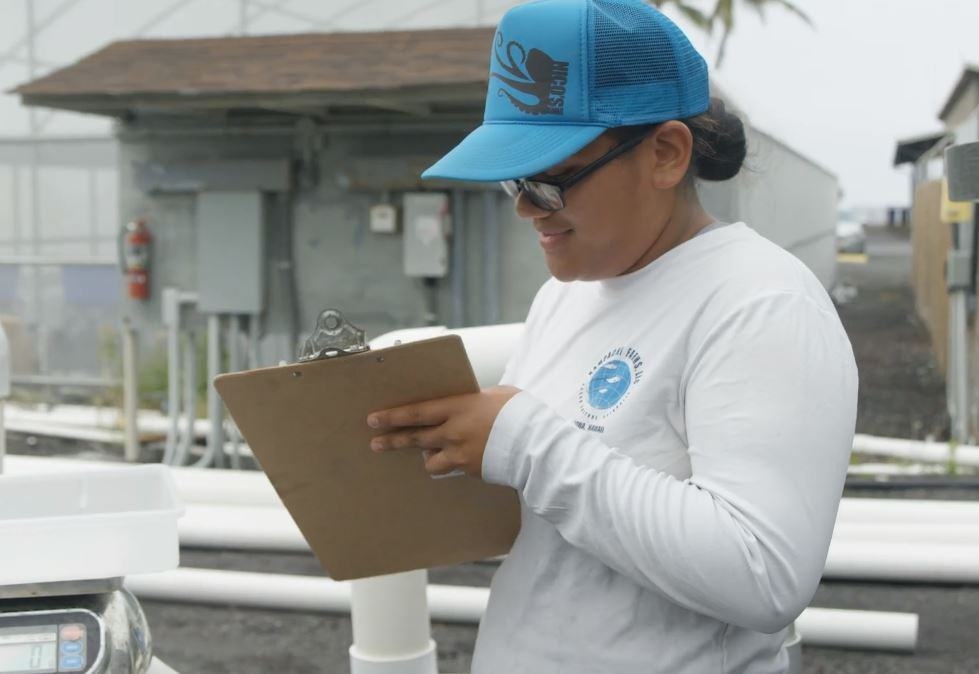From left to right: Travis Burroughs (intern), Julien Stevens (internship coordinator), and C.J. Chao (intern).
As the Internship coordinator at Kampachi Farms, I regularly field emails and calls from marine scientists in training, and aspiring fish farmers. I myself started out at Kampachi Farms as an intern, and I’m a firm believer in the opportunities that volunteering can provide. It’s a great way to gain aquaculture experience, and to get to know an organization without having to commit yourself for the long term. But often potential aquaculture interns have a romanticized notion about what their role might be. To clarify what the role is all about I’ve asked our two summer interns, C.J. and Travis, to answer a few questions.
Can you tell us a bit about yourself and why you wanted to intern at Kampachi Farms?
C.J. Chao: I’m a senior at Boston University studying Environmental Policy and Analysis. I came to Kampachi Farms because of my great interest in aquaculture, which stems from my love of the ocean. I look at aquaculture as a possible sustainable substitute for depleting wild fisheries and want to be involved in an industry that is new, progressive and exciting. I’m originally from San Francisco but grew up in the suburb of Marin. I’m a certified master scuba diver and also maintained saltwater aquariums as a kid. These two hobbies fostered my interest in the aquaculture field.
Travis Burroughs: I’m from Larkspur, California, and am a senior at the University of Denver studying sustainability and marketing. My interest in aquaculture was sparked by my lifetime of fishing, which first led me to an internship at Monterey Abalone Company last summer. I had a fantastic experience there and with my love of fish, I wanted to gain work experience with a company that focuses on environmentally responsible fish farming.
What sort of work did you do during your internship at Kampachi Farms?
Travis: The internship was both full of routine experience and novel challenges, depending on research needs. These routine tasks included: feeding fish, observing behavior, scrubbing tanks, maintaining the filter systems through back flushing and cleaning filters, and tidying up the site. We also helped to move 20 tons of gravel to level the site for new broodstock tanks for our kampachi.
CJ: Each day Travis and I would complete necessary husbandry tasks, including feeding fish and cleaning tanks. We also assisted with ongoing experiments, including a feed trial using an experimental soy-based feed, and testing the viability of growing algae in the open ocean for human, animal feed, and biofuel purposes.
What did you learn from your internship?
CJ: Kampachi Farm’s research team offered me a wide ranging and in-depth look into research-oriented aquaculture. During my internship I was able to work with many farmable marine species, including Seriola rivoliana (also known as Kampachi or Yellowtail Amberjack), Giant Pacific Grouper, Nenue (Grey Chub) and several species of algae.
Travis: While at the Kampachi Farms R&D facility in Kona we were given a first-hand look into fish husbandry at the different life stages. We were lucky enough to be on site during a feed trial, where over 700 fingerling kampachi that had been spawned and hatched out on site, were being grown out on different sustainable feed options. We began feed trials with fish ranging in size from 14-40 grams, which involved weighing, measuring, and tagging each individual fish and then putting them into marked tanks. The goal of the feed trial was to compare different feeds and see which one produced the best FCR and overall fish health. The data collected on-site could then be used in future commercial use with Kampachi Farm’s King Kampachi in La Paz Mexico.
Some of the Kampachi Farms research team with C.J. and Travis on their last day.
A few considerations to keep in mind for potential interns: All of our research work in Kona is grant-funded, and so we are presently unable to pay interns for their time. Any internship would therefore need to be on a pro-bono basis. Feel free to get creative in your self-funding options; we have had students find outside funding from their University or regional STEM internship programs. Interns are required to provide their own housing and transport to Kona, and must also have reliable ground transportation when here on the island (public transport in Kona is virtually non-existent).
We love hosting passionate aquaculture interns when our research schedule allows it. If you are interested, please contact our team to learn more about our internship program. You can also stay up to date with our current research projects here.





